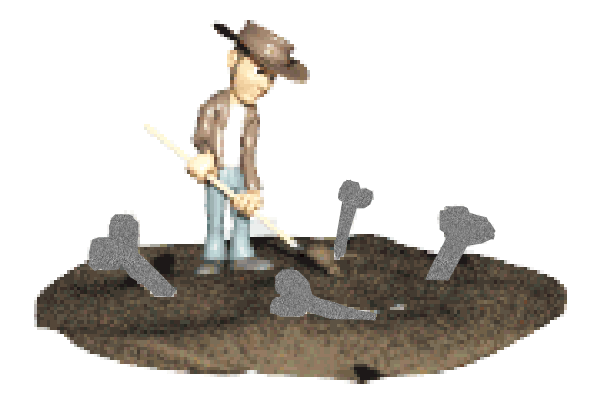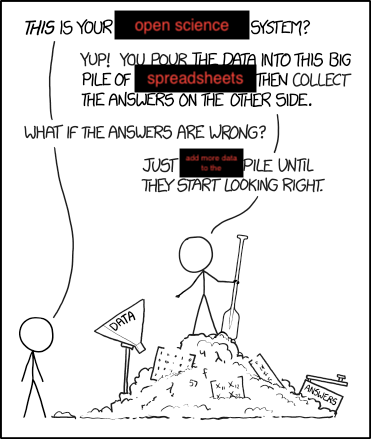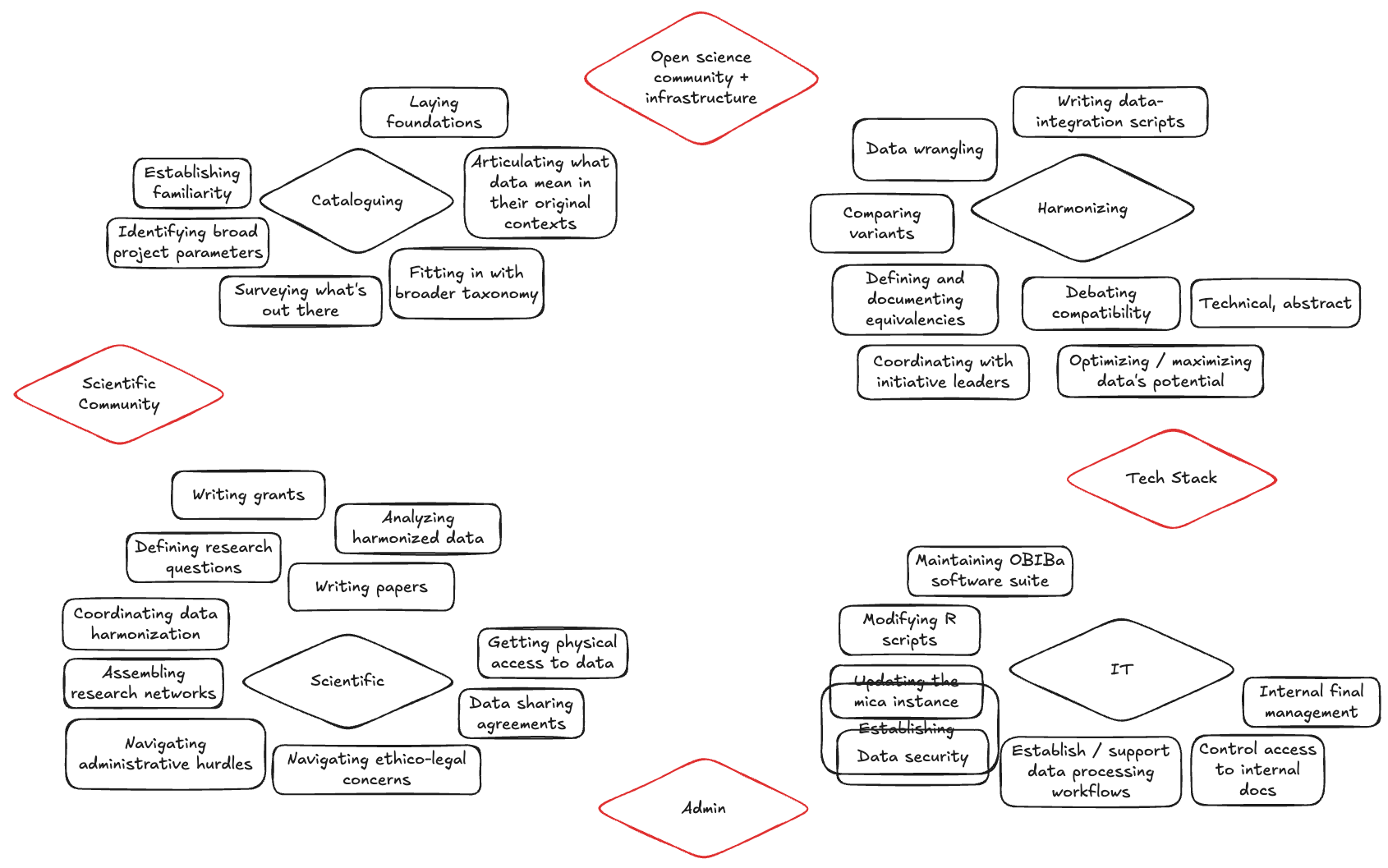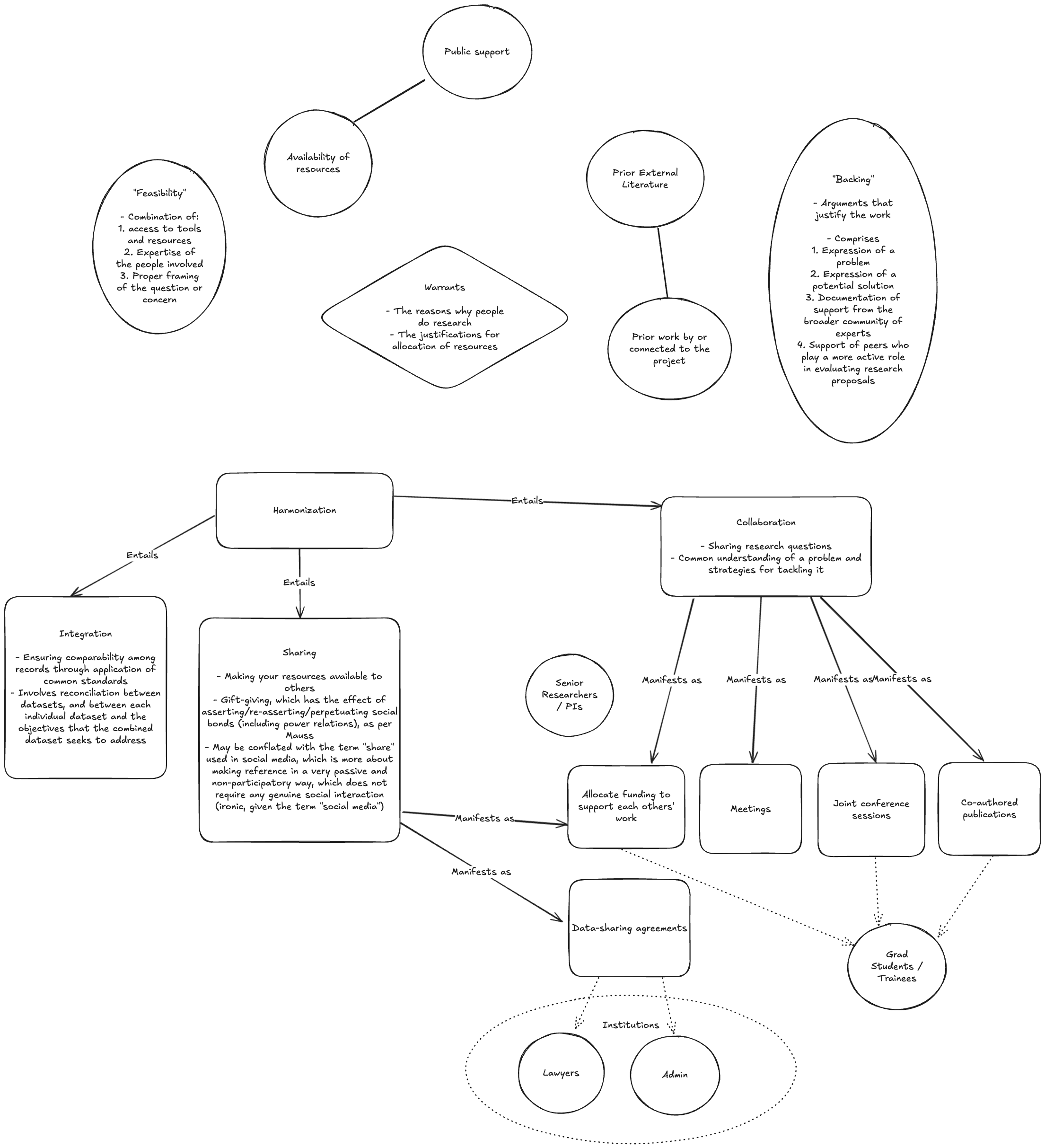Articulating data harmonization as pragmatic, collaborative experiences
MCHI Research Group
April 3, 2025
Outline
- My background
- My objectives
- Plan of action
- Questions and feedback?
About me
- Palaeolithic/Neolithic of Greece / Cyprus / Near East
- Managed archaeological project databases
- Computational methods using integrated datasets
- Research about archaeological data work
- Research about academic open source software development
- open-archaeo.info: a list of archaeological software
- 10.11141/ia.67.13

About me
- Scholar of scientific practice
- Specific interests:
- data sharing
- data documentaion
- information commons
- research infrastructure
- research software
- alternative publishing
- collaborative experiences
- open science in practice

What am I doing here?
- Framing harmonization as information commons
- Who contributes? Who extracts?
- What are their converging and diverging interests?
- What commitments do these interactions entail?
- Framing harmonization as value-driven, improvized action
- What are the targeted outcomes?
- How do they go about trying to achieve these objectives?
- Are their strategies successful? Why or why not?
- Revealing tensions between:
- naive collective imaginations about data in technical and administrative systems
- the messy, pragmatic and collaborative reality of data work in practice
Interviews
- Interviews with leaders and key stakeholders of data harmonization initiatives
- I will ask participants about:
- The motivations for their initiatives
- The challenges they experience
- How they envision success and failure
- Perceptions of their own roles and the roles of others
- The values that inform their decisions
- The systems that enable them to achieved their goals
- Ways in which they believe data sharing could be improved
Qualitative Data Analysis
- Coding interview transcripts
- Enables me to develop theory about social actions
- Writing analytic memos
- To synthesize broader concepts, themes and theories based on the encoded data
- Informed by broader theoretical frameworks
- About scientific practice, research infrastructure, collaborative experiences, information commons
- Theory is therefore “grounded” in the data

Sampling
- Theoretical sampling
- Sample emerges in response to ongoing theory-building
- Clustered into cases
- Cases are data harmonization initiatives
- Each constitute their own sets of goals and circumstances
- Leveraging overlap and difference to support comparison
- Not generalizable, but representative of work occurring under similar circumstances
- Doesn’t have to be fully generalizable to inform practical action
Current Work
- First interview next week
- Creating “situational maps”
- Identifying “elements” and potential relationships
- Relating my own understanding to interviewees’ persectives
- Writing memos about these elements


Questions / Comments ?
- Project Website:
- Slides:
- GitHub: